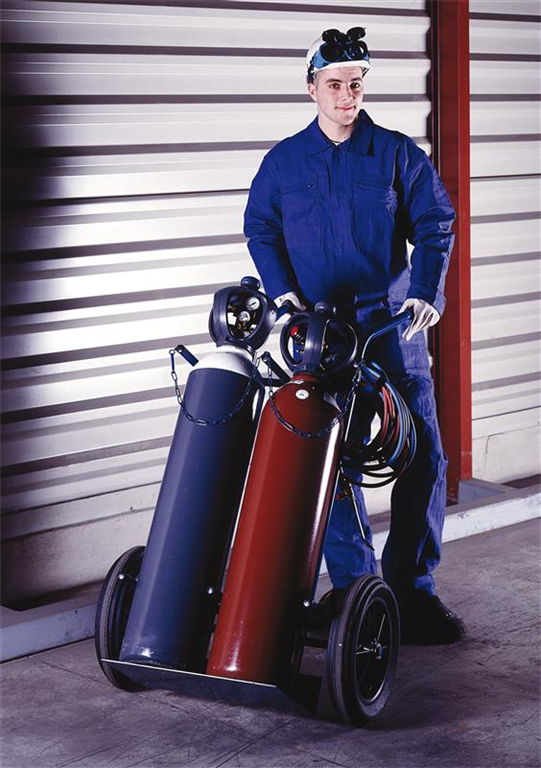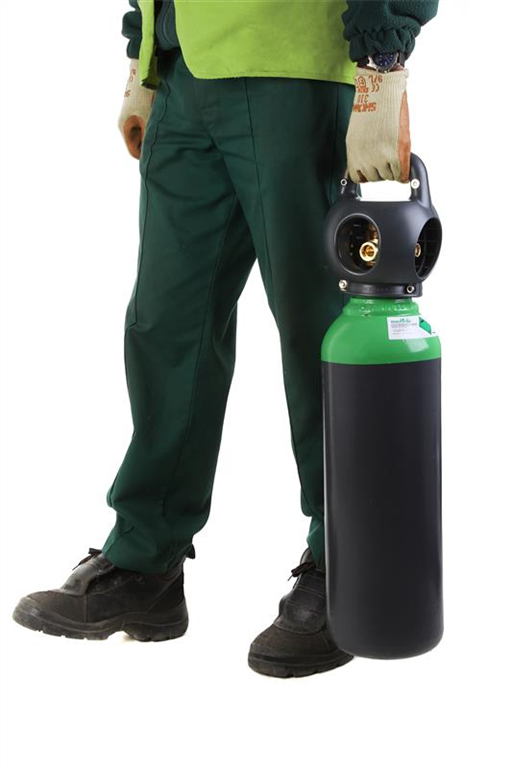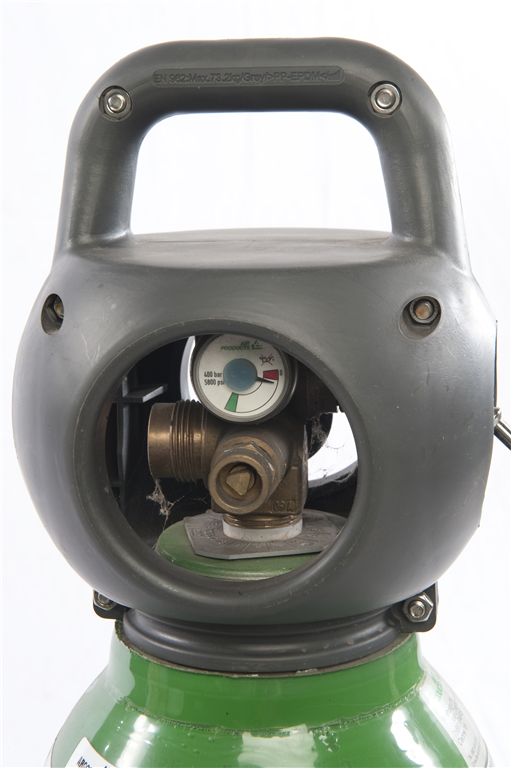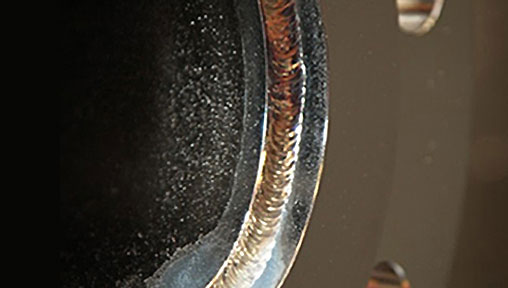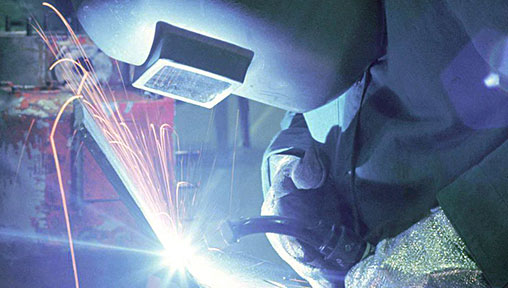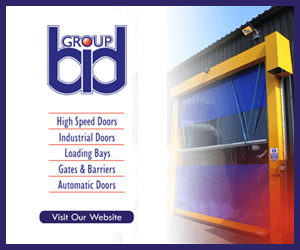Address
2 Millennium Gate
Westmere Drive
Westmere Drive
Crewe
CW6 0BF
England UK
About Air Products UK
Air Products touches the lives of consumers around the globe in positive ways every day. With approximately 16,000 employees and operations in 50 countries, we serve customers across a wide range of industries from food and beverage to medical, energy and transportation. We supply a unique portfolio of atmospheric and process gases, equipment and services.
Founded in 1940, Air Products has built a reputation for its innovative culture, operational excellence and commitment to safety and the environment. Our passionate, talented and committed employees from a diversity of backgrounds are driven by Air Products’ higher purpose to create innovative solutions that benefit the environment, enhance sustainability and address the challenges facing customers, communities and the world.
Gases
Equipment
From gas production, storage and handling equipment to specific application equipment that includes food freezers, oxy-fuel burners and heat exchangers, you can count on Air Products to supply your needs. We have more than 70 years’ experience providing safe, reliable, state-of-the-art equipment to a broad range of industries.
Founded in 1940, Air Products has built a reputation for its innovative culture, operational excellence and commitment to safety and the environment. Our passionate, talented and committed employees from a diversity of backgrounds are driven by Air Products’ higher purpose to create innovative solutions that benefit the environment, enhance sustainability and address the challenges facing customers, communities and the world.
Gases
- Argon
- Carbon Dioxide
- Carbon Monoxide Syngas
- Helium
- Hydrogen
- Nitrogen
- Oxygen
- Speciality Gases
- Gas Mixtures
- Welding/Cutting Gases
- Supply Options
Equipment
From gas production, storage and handling equipment to specific application equipment that includes food freezers, oxy-fuel burners and heat exchangers, you can count on Air Products to supply your needs. We have more than 70 years’ experience providing safe, reliable, state-of-the-art equipment to a broad range of industries.
- For gas handling and application equipment for your industry:
Industries - For details on our full range of gas production equipment:
On-site Gas Generation
Membrane Separators and Systems
Cryogenic Air Separation Plants - For details on our liquefied natural gas (LNG) heat exchangers:
Liquefied Natural Gas (LNG)
Gallery
Videos
News
Spatter is made up of many thousands of droplets of molten filler metal that escape from the weld pool and are scattered around the work area during welding. These small, round balls of molten metal can fall on the welder, workpiece, the floor and surrounds. Sometimes they stick and are difficult to remove, sometimes they cool and form tiny balls of metal. It is not possible to completely eliminate spatter from a MIG/MAG welding process. However, the objective should be to reduce as much as possible. The following article briefly explains how spatter occurs, how to remove or prevent it, and explores the hidden costs that spatter creates.
There are various potential causes of spatter, including:
• Incorrect welding parameter; arc voltage, wire feed speed, welding current, stick-out, shielding gas flow rate and torch angle all need to be optimised.
• Poor base material surface conditions; joint faces and the weld area need to be clean and free from contamination such as oil, paint, scale and rust.
• Use of welding equipment in poor working order.
• Sub-optimal shielding gas selection; for instance, when MAG welding carbon steel, argon/carbon dioxide mixtures generate more spatter than argon/carbon dioxide/oxygen gas mixtures such as one of the Ferromaxx® gases from Air Products.
Spatter can be removed either using hand tools (such as a grinder or chisel) or via a chemical process. In some instances, anti-spatter wipes can be applied to the workpiece, prior to welding, to ease the removal of spatter. However, any method to remove spatter will require some manual input.
From a visual perspective, it is well understood why it is undesirable to have spatter on the workpiece, as it negatively impacts the finish of the product. Due to the uneven surface and poor adhesion of the spatter, paint finishes will have imperfections and offer poor protection. This, in turn, can shorten the life cycle of the final product
However, there are several other key reasons to eliminate spatter that are sometimes overlooked. These are all cost-related.
• Spatter is a waste of wire. On the face of it a reduction in spatter on a weld may seem insignificant and not worth the effort to resolve. However, filler wire is expensive, and the melting of spatter uses valuable electricity, up to 20% of filler wire can be wasted in spatter if not controlled properly. In addition, spatter can stick to gas nozzles and contact tips blocking the flow of gas and causing porosity.
• Spatter increases material costs. Anti-spatter, grinding wheels, chemicals, power – the more spatter there is to remove, the more these costs increase.
• Spatter incurs labour costs to remove. This is lost production time. Welders are skilled labour. Any time spent removing spatter is time that could have been spent in a more productive way.
There is a compelling case to minimise spatter. Air Products can work with you to achieve this goal. All our Maxx® weld process gases have been designed to minimise spatter, saving you time and money. Our welding application specialists can work with you to choose the correct gas for your process and optimise your welding set-up.
Contact us today to request an appointment on 0800 389 0202 or email apukinfo@airproducts.com
There are various potential causes of spatter, including:
• Incorrect welding parameter; arc voltage, wire feed speed, welding current, stick-out, shielding gas flow rate and torch angle all need to be optimised.
• Poor base material surface conditions; joint faces and the weld area need to be clean and free from contamination such as oil, paint, scale and rust.
• Use of welding equipment in poor working order.
• Sub-optimal shielding gas selection; for instance, when MAG welding carbon steel, argon/carbon dioxide mixtures generate more spatter than argon/carbon dioxide/oxygen gas mixtures such as one of the Ferromaxx® gases from Air Products.
Spatter can be removed either using hand tools (such as a grinder or chisel) or via a chemical process. In some instances, anti-spatter wipes can be applied to the workpiece, prior to welding, to ease the removal of spatter. However, any method to remove spatter will require some manual input.
From a visual perspective, it is well understood why it is undesirable to have spatter on the workpiece, as it negatively impacts the finish of the product. Due to the uneven surface and poor adhesion of the spatter, paint finishes will have imperfections and offer poor protection. This, in turn, can shorten the life cycle of the final product
However, there are several other key reasons to eliminate spatter that are sometimes overlooked. These are all cost-related.
• Spatter is a waste of wire. On the face of it a reduction in spatter on a weld may seem insignificant and not worth the effort to resolve. However, filler wire is expensive, and the melting of spatter uses valuable electricity, up to 20% of filler wire can be wasted in spatter if not controlled properly. In addition, spatter can stick to gas nozzles and contact tips blocking the flow of gas and causing porosity.
• Spatter increases material costs. Anti-spatter, grinding wheels, chemicals, power – the more spatter there is to remove, the more these costs increase.
• Spatter incurs labour costs to remove. This is lost production time. Welders are skilled labour. Any time spent removing spatter is time that could have been spent in a more productive way.
There is a compelling case to minimise spatter. Air Products can work with you to achieve this goal. All our Maxx® weld process gases have been designed to minimise spatter, saving you time and money. Our welding application specialists can work with you to choose the correct gas for your process and optimise your welding set-up.
Contact us today to request an appointment on 0800 389 0202 or email apukinfo@airproducts.com
“Lack of availability of key skills is viewed by UK CEOs as one of the most significant threats to growth over the next 12 months” according to PwC’s 22nd CEO survey.
The UK media frequently report about the skills shortage in engineering and healthcare, however the shortage of welders is not so prominent in the headlines. Nevertheless, the UK government is acutely aware of this problem, particularly in light of the £600bn worth of new infrastructure projects scheduled for completion by 2028. Both the public and private sectors are putting effort behind resolving the situation such as establishing the Welding Trailblazer Group* and inclusion of welding in the UK Shortage Occupations List. However, there is no simple short-term fix and the problem could be exacerbated depending on impending political decisions.
It would be dangerous to over-simplify the root cause as there are many factors that contribute to this problem. However, one of the issues often quoted is that school pupils are generally not aware of welding. An article in The Telegraph in 2015 quoted a report by insurance group Constructaquote claiming that half of young jobseekers do not even know what welding is or what it entails.
Air Products is one of the many companies striving to overcome this knowledge gap. The company is a key sponsor of Skillweld (the welding related competitive element of WorldSkills UK) aiming to develop and upskill young welders. “We are extremely proud to sponsor Skillweld for the last 20 years and it is impressive to see the quality of the competitors’ work”. Kevin Sherry, Lead Welding Applications Specialist, Air Products.
involved and appeals to the young people’s gaming abilities!”, said Lynn Willacy, STEM and Community Ambassador, Air Products.
It is clear that all those involved in the fabrication and engineering industries have a responsibility to collaborate and contribute to reduce the skill shortage problem and ensure long-term economic prospects of the UK. Hopefully, we’ll see that many more bright sparks will be encouraged to enter this important career.
* a group of leading UK manufacturers developing standard for welding apprenticeships.
The UK media frequently report about the skills shortage in engineering and healthcare, however the shortage of welders is not so prominent in the headlines. Nevertheless, the UK government is acutely aware of this problem, particularly in light of the £600bn worth of new infrastructure projects scheduled for completion by 2028. Both the public and private sectors are putting effort behind resolving the situation such as establishing the Welding Trailblazer Group* and inclusion of welding in the UK Shortage Occupations List. However, there is no simple short-term fix and the problem could be exacerbated depending on impending political decisions.
It would be dangerous to over-simplify the root cause as there are many factors that contribute to this problem. However, one of the issues often quoted is that school pupils are generally not aware of welding. An article in The Telegraph in 2015 quoted a report by insurance group Constructaquote claiming that half of young jobseekers do not even know what welding is or what it entails.
Air Products is one of the many companies striving to overcome this knowledge gap. The company is a key sponsor of Skillweld (the welding related competitive element of WorldSkills UK) aiming to develop and upskill young welders. “We are extremely proud to sponsor Skillweld for the last 20 years and it is impressive to see the quality of the competitors’ work”. Kevin Sherry, Lead Welding Applications Specialist, Air Products.
involved and appeals to the young people’s gaming abilities!”, said Lynn Willacy, STEM and Community Ambassador, Air Products.
It is clear that all those involved in the fabrication and engineering industries have a responsibility to collaborate and contribute to reduce the skill shortage problem and ensure long-term economic prospects of the UK. Hopefully, we’ll see that many more bright sparks will be encouraged to enter this important career.
* a group of leading UK manufacturers developing standard for welding apprenticeships.
There are more than 16,000 companies in the building construction industry in UK and Ireland* and, therefore, a significant segment for Air Products welding gases.
As of July 2014, all suppliers of metal components and fabrications in to the construction industry must comply to EN1090. EN1090 standards are European standards that regulate the fabrication and assembly of steel and aluminium structures and are recognised by the Construction Products Regulation (CPR). The CPR requires that all products carry a legitimate CE marking, EN1090 is the structural steel element of the CPR.
What does a fabricator need to meet the requirements of EN1090?
ISO3834 – Quality requirements for Fusion Welding of Metallic Materials
FPC - Factory Production Control documentation
RWC - Responsible Welding Coordinator
WPQR - Welding Procedure Qualification Record(s)
WQ - Welder Qualification test(s)
WPS - Welding Procedure Specification(s)
Welding Plan - Welding control document
Audit - by a nominated Notified Body
What is the relevance to the supply of welding gas?
Welding gas selection is specified as part of the Welding Procedure Specification (WPS). As a key element of the welding process, shielding gas needs to conform to ISO14175 to indicate quality standard and compliance. ISO14175 is an international standard detailing the specification and classification of gases for welding and cutting.
Not all gas suppliers conform to ISO14175. The use of non-compliant products in the welding process has severe penalties and can result in fines or imprisonment for business owners. The company will have to recall all non-compliant products already in the market and cease production until proper certification is in place.
Despite widespread understanding and recognition of the requirement for EN1090 compliance in the structural steel industry, there are still companies that are not operating with approved welding gas.
As an Air Products customer, you can be sure that any welding gas provided by us meets or exceeds the EN1090 standards. We have a complete range of documentation and technical support to assist your structural steel customers. For more information please contact your local Air Products account manager.
In addition, Air Products is proud to announce that we are now members of BCSA (British Constructional Steelwork Association). We are the only industrial gas supplier to be listed; it is acknowledgement of our expertise and commitment to this important industry.
As of July 2014, all suppliers of metal components and fabrications in to the construction industry must comply to EN1090. EN1090 standards are European standards that regulate the fabrication and assembly of steel and aluminium structures and are recognised by the Construction Products Regulation (CPR). The CPR requires that all products carry a legitimate CE marking, EN1090 is the structural steel element of the CPR.
What does a fabricator need to meet the requirements of EN1090?
ISO3834 – Quality requirements for Fusion Welding of Metallic Materials
FPC - Factory Production Control documentation
RWC - Responsible Welding Coordinator
WPQR - Welding Procedure Qualification Record(s)
WQ - Welder Qualification test(s)
WPS - Welding Procedure Specification(s)
Welding Plan - Welding control document
Audit - by a nominated Notified Body
What is the relevance to the supply of welding gas?
Welding gas selection is specified as part of the Welding Procedure Specification (WPS). As a key element of the welding process, shielding gas needs to conform to ISO14175 to indicate quality standard and compliance. ISO14175 is an international standard detailing the specification and classification of gases for welding and cutting.
Not all gas suppliers conform to ISO14175. The use of non-compliant products in the welding process has severe penalties and can result in fines or imprisonment for business owners. The company will have to recall all non-compliant products already in the market and cease production until proper certification is in place.
Despite widespread understanding and recognition of the requirement for EN1090 compliance in the structural steel industry, there are still companies that are not operating with approved welding gas.
As an Air Products customer, you can be sure that any welding gas provided by us meets or exceeds the EN1090 standards. We have a complete range of documentation and technical support to assist your structural steel customers. For more information please contact your local Air Products account manager.
In addition, Air Products is proud to announce that we are now members of BCSA (British Constructional Steelwork Association). We are the only industrial gas supplier to be listed; it is acknowledgement of our expertise and commitment to this important industry.
“Productivity is a broad term – it became apparent that we needed to break down this concept and clearly articulate to customers all of the various benefits that Maxx® weld process gases bring to a welding operation and demonstrate how they all add up.” Alison Smith, Segment Marketing Manager UK and Ireland, Metal Fabrication, Air Products.
“See the bigger picture” is the message that Air Products is advocating to promote their Maxx® weld process gases range. The tagline is a result of recent market research focused on the UK & Ireland metal fabrication market. The research confirmed that there is significant technical welding experience in the UK & Ireland. However, there is a clear need for more commercial advice from suppliers.
The key pain points that most customers are trying to address are how to maximise both quality and productivity, whilst minimising production costs. There is a perception that welding gas is a low interest commodity. Whilst it is widely accepted that using the incorrect welding gas can negatively impact production results, there is less understanding on how choosing the optimal gas can significantly improve output. This led us to develop the “Bigger Picture” concept. Maxx® gases can have a sizeable impact on either reducing a variety of welding related costs or drive enhanced productivity – all contributing to a positive bottom line impact.
• The addition of helium in the Maxx® Plus gas mixtures significantly increase manual welding speeds. Speed can increase by 17-35% depending on welding operation. This contributes to maximising output per active welding time meaning that more can be achieved with less cost.
• Welding with Maxx® weld process gas enhances deeper penetration, flatter welds, reduced distortion and oxidisation. This leads to a reduction in re-work or rejects, meaning more labour time may be spent producing commercially viable materials, not to mention the increase in customer acceptance.
• Maxx® gases further contribute to cost reduction of the welding operation by less production spatter. For every hour saved on post-weld cleaning this is either a direct cost saving (if outsourced) or more available time for welding (if managed in-house).
If you would like to more check out www.airproducts.co.uk/maxx or call 0800 389 0202 for a free demonstration.
“See the bigger picture” is the message that Air Products is advocating to promote their Maxx® weld process gases range. The tagline is a result of recent market research focused on the UK & Ireland metal fabrication market. The research confirmed that there is significant technical welding experience in the UK & Ireland. However, there is a clear need for more commercial advice from suppliers.
The key pain points that most customers are trying to address are how to maximise both quality and productivity, whilst minimising production costs. There is a perception that welding gas is a low interest commodity. Whilst it is widely accepted that using the incorrect welding gas can negatively impact production results, there is less understanding on how choosing the optimal gas can significantly improve output. This led us to develop the “Bigger Picture” concept. Maxx® gases can have a sizeable impact on either reducing a variety of welding related costs or drive enhanced productivity – all contributing to a positive bottom line impact.
• The addition of helium in the Maxx® Plus gas mixtures significantly increase manual welding speeds. Speed can increase by 17-35% depending on welding operation. This contributes to maximising output per active welding time meaning that more can be achieved with less cost.
• Welding with Maxx® weld process gas enhances deeper penetration, flatter welds, reduced distortion and oxidisation. This leads to a reduction in re-work or rejects, meaning more labour time may be spent producing commercially viable materials, not to mention the increase in customer acceptance.
• Maxx® gases further contribute to cost reduction of the welding operation by less production spatter. For every hour saved on post-weld cleaning this is either a direct cost saving (if outsourced) or more available time for welding (if managed in-house).
If you would like to more check out www.airproducts.co.uk/maxx or call 0800 389 0202 for a free demonstration.
 UK
UK Ireland
Ireland Scotland
Scotland London
London



